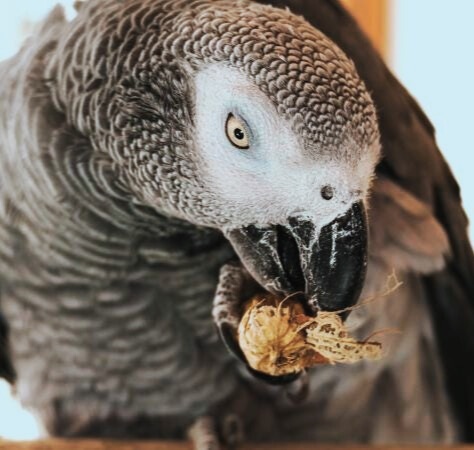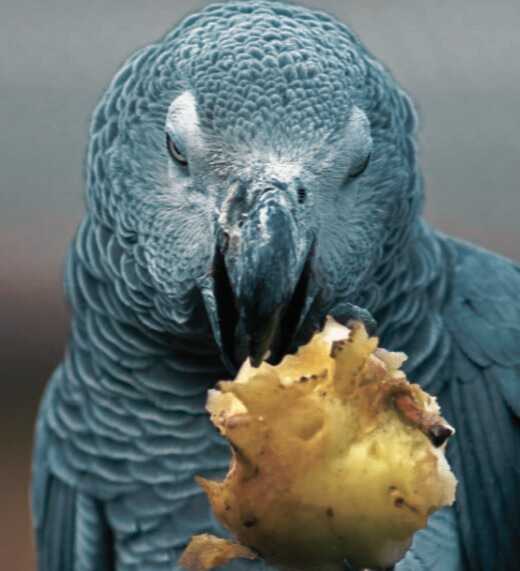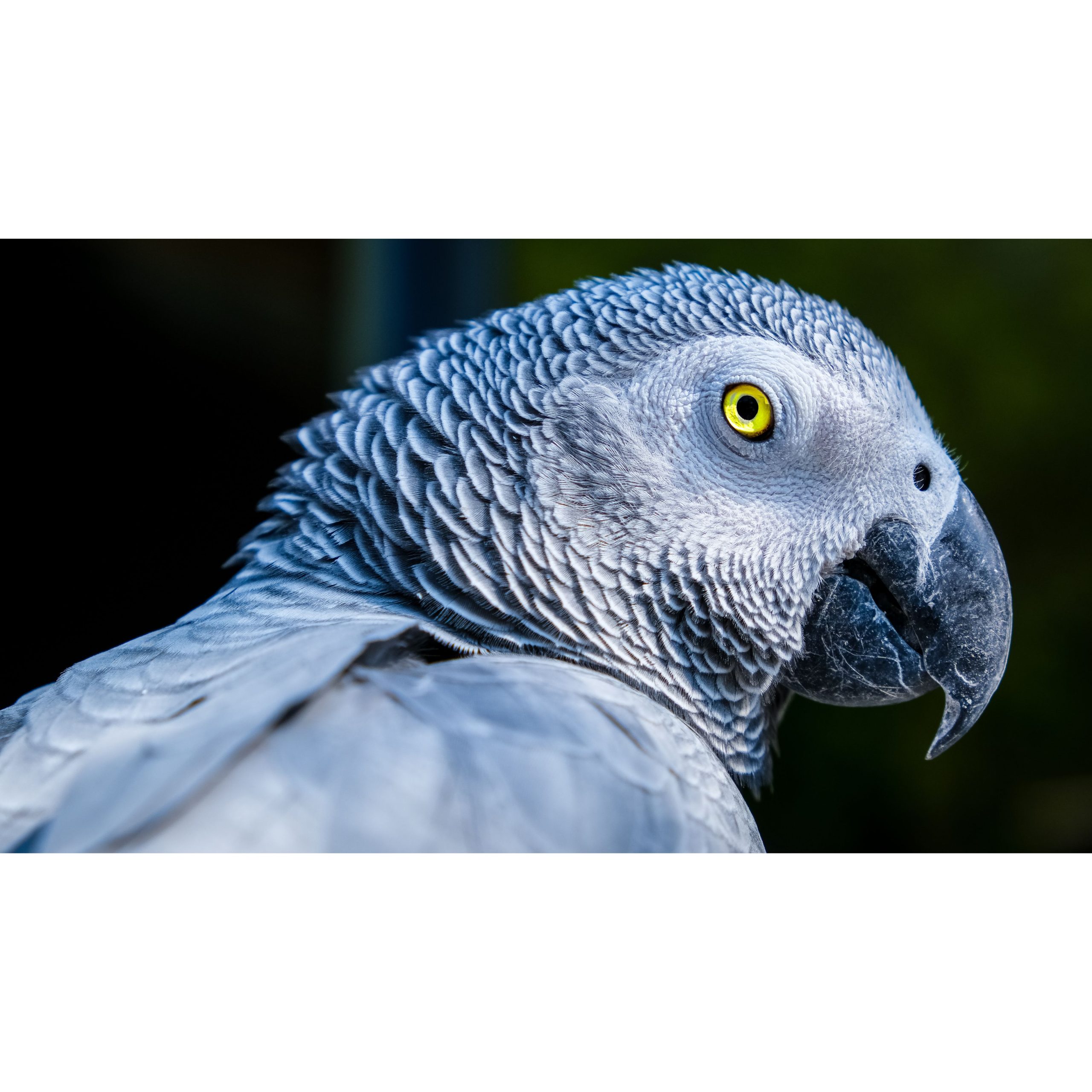Introduction to African Grey’s Beak food
African Grey Parrots are not only renowned for their exceptional intelligence and charming personalities but also for their distinctive beaks. Proper nutrition is crucial to ensure the health and vibrancy of an African Grey’s beak. In this guide, we’ll explore the best foods to nourish your African Grey’s beak, promoting both physical well-being and optimal beak health.

- Pelleted Diets for Balanced Nutrition
Pelleted diets specifically formulated for parrots, including African Greys, serve as a foundation for well-rounded nutrition. These pellets are designed to provide essential vitamins, minerals, and nutrients, promoting overall health, including the condition of the beak.
- Fresh Fruits: A Colorful Delight
Incorporating a variety of fresh fruits into your African Grey’s diet not only adds a burst of color but also contributes vital nutrients. Fruits like apples, berries, and papayas provide antioxidants, supporting beak health and promoting a glossy appearance.

- Vegetables: Nutrient-Rich and Crunchy
Vegetables are excellent for both beak health and overall nutrition. Broccoli, carrots, and leafy greens offer a range of vitamins, including vitamin A, which is essential for maintaining healthy beaks and feathers.
- Nuts and Seeds: Healthy Fats for Beak Brilliance
Nuts and seeds, such as almonds, walnuts, and sunflower seeds, are rich in healthy fats and proteins. These contribute to the overall well-being of your African Grey and support the strength and luster of its beak.
- Calcium-Rich Foods: Essential for Beak Structure
Calcium is crucial for maintaining the structural integrity of an African Grey’s beak. Incorporate foods like low-fat dairy products, tofu, and dark leafy greens to ensure an adequate calcium intake.
- Whole Grains for Energy and Beak Strength
Whole grains like brown rice, quinoa, and oats provide complex carbohydrates, offering sustained energy for your African Grey. Additionally, these grains contribute to beak strength and health.
- Berries: Antioxidant Powerhouses
Berries, such as blueberries and strawberries, are not only delicious but also packed with antioxidants. These compounds play a role in reducing oxidative stress, contributing to the overall health of your African Grey’s beak.
- Clean Water: Hydration for Beak Brilliance
Ensuring your African Grey has access to clean, fresh water is essential. Proper hydration supports overall health, including the condition of the beak and feathers.
- Avoiding Harmful Foods: Keeping Beak Health in Mind
While providing a diverse and nutritious diet, it’s crucial to avoid certain foods that can be harmful to your African Grey’s beak. These may include overly salty or sugary treats, caffeine, chocolate, and foods high in fat.
Conclusion
Nourishing your African Grey’s beak involves a combination of balanced nutrition, fresh and colorful foods, and hydration. By incorporating a variety of fruits, vegetables, nuts, and seeds into their diet, you not only support their overall health but also enhance the brilliance and strength of their distinctive beaks. Remember to provide a diet rich in diversity, ensuring your African Grey enjoys a happy and healthy life.
Frequently Asked Questions
- How often should I offer fresh fruits and vegetables to my African Grey?
-
- Aim to provide fresh fruits and vegetables daily, ensuring a varied and nutritionally balanced diet.
- Can I offer cooked grains to my African Grey?
-
- Yes, cooked whole grains like brown rice and quinoa can be a healthy addition to your African Grey’s diet.
- Should I provide supplements for beak health?
-
- In most cases, a well-balanced diet should meet your African Grey’s nutritional needs. Consult with a veterinarian before introducing supplements.
- Are there specific fruits or vegetables to avoid?
-
- While many fruits and vegetables are safe, avoid offering avocados, as they can be toxic to parrots.
- How can I encourage my African Grey to stay hydrated?
-
- Ensure a clean and accessible water source, and consider offering water-rich fruits like watermelon as a treat.

1 thought on “Nourishing Your African Grey’s Beak: A Guide to Healthy and Happy Eating”